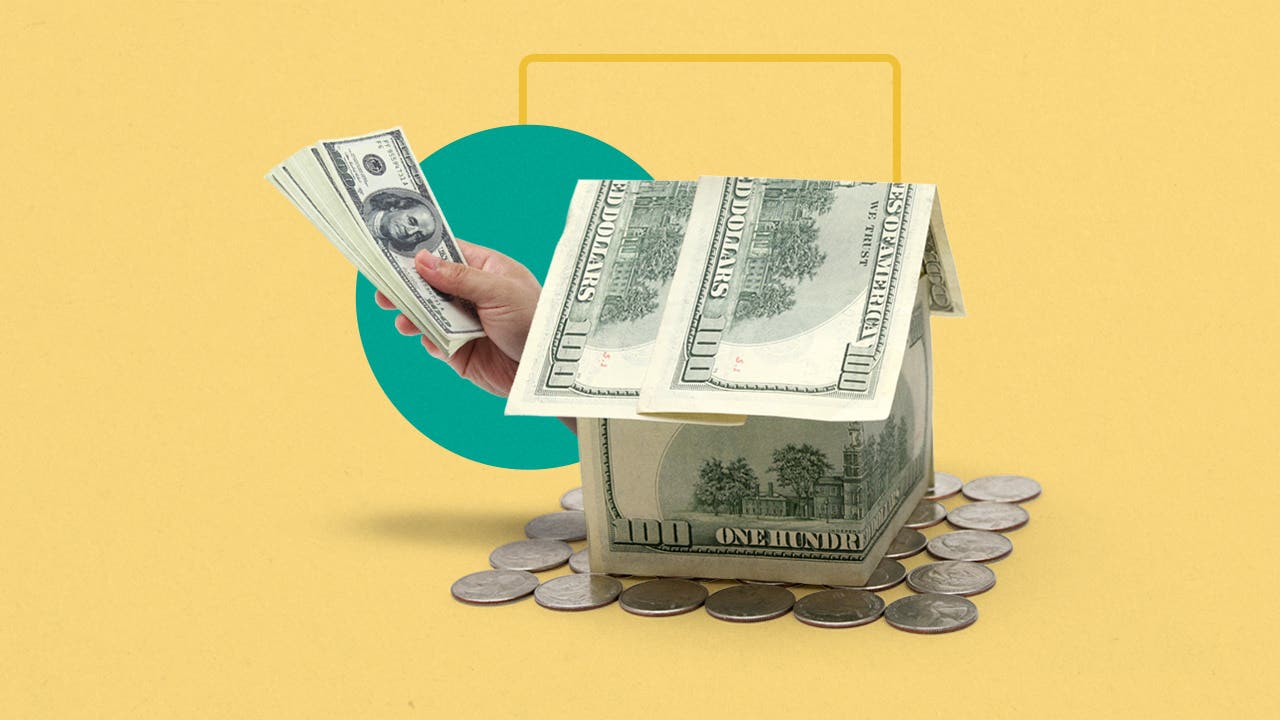How much does it cost to refinance a mortgage?

The Bankrate promise
At Bankrate we strive to help you make smarter financial decisions. While we adhere to strict , this post may contain references to products from our partners. Here's an explanation for .
Key takeaways
- Refinancing your mortgage costs anywhere between 2 to 5 percent of the amount of the new loan. These closing costs might include an application, origination and home appraisal fees.
- To determine whether it's worth paying to refinance, figure out when you’ll break even — the point at which the savings on your new mortgage surpasses the upfront cost.
- You can save on the cost of refinancing by boosting your credit score, comparing mortgage terms and rates and negotiating closing costs.
Refinancing a mortgage can be an appealing move in a variety of circumstances. If a lower mortgage interest rate is available through refinancing, for instance, you stand to save thousands of dollars over the life of the loan. Conversely, if rates are trending up, refinancing from an adjustable-rate mortgage (ARM) to a fixed-rate loan can save you money over the long-term and make it easier to budget for your expenses each month.
But refinancing isn’t free. There are upfront expenses associated with the process, just as they were with your first home loan. So it’s important to crunch the numbers and make sure it’s really worth the expense.
Here’s how much it costs to refinance a mortgage, and why.
How much does it cost to refinance?
The average mortgage refinance runs $2,375 in closing costs, excluding any taxes, according to ClosingCorp. These costs vary primarily according to the size of your loan and where you live. Generally, you can expect to pay between 2 percent and 5 percent of the new loan balance in closing costs. If you’re refinancing a $200,000 mortgage, say, you might be looking at anywhere between $4,000 and $10,000 in closing costs. Here’s a breakdown of common closing costs:
| Closing costs | Fee |
|---|---|
| Application fee | $75 – $300 |
| Origination and/or underwriting fee | 1% – 1.5% of loan principal |
| Recording fee | $25 – $250 depending on location |
| Appraisal fee | $500 – $1,000 |
| Credit check fee | $25 |
| Title services | $300 – $2,000 |
| Survey fee | $140 – $400 |
| Attorney/settlement fee | $500 – $1,000 |
Along with closing costs, you’ll pay interest at a new rate. This rate depends on many variables, including:
- Your credit score
- Lender
- Type of refinance
- Loan size and term
- Property type
How to lower the cost to refinance
The less you pay to refinance, the more money you stand to save on interest and the quicker you’ll realize those savings. Here are some tips to lower the cost of the new loan:
1. Boost your credit score
Just as you aimed for a certain credit score when you applied for your first mortgage, you’ll need to meet credit score minimums to refinance, too. The better your credit, the lower your refinance rate. Among several strategies, you can boost your credit by paying down or paying off debt.
2. Compare mortgage offers and rates
To score a good offer, you better shop around, comparing options from several mortgage refinance lenders. Look at the annual percentage rate (APR) — not just the interest rate — to get a fuller sense of the loan’s cost. Consider working with a mortgage broker to get a range of offers. Always be sure to get a quote from your existing lender, too, in case it offers a lower-cost refi or other repeat customer benefits.
3. Negotiate closing costs
As with your first mortgage, look closely at the loan estimate from your lender to understand the exact cost to refinance. You might save yourself some money by negotiating closing costs, especially if you’ve shopped around and have more than one refinance offer in hand. You can use other quotes to check for unusually high fees, as well.
4. Ask for fee waivers
In the same vein, ask your bank or lender if it will waive or lower the application fee or credit check fee. You can also see if you can forgo a new home appraisal or property survey if you’ve recently had one done. Your lender might be willing to work with you, particularly if you’re an existing customer.
5. Assess whether to buy mortgage points
If you want to lower your mortgage refinance closing costs, consider whether buying mortgage or discount points is worth it. While buying points lowers your interest rate, it’s usually best only when you expect to own the home for a long time and don’t plan to refinance again — even to pay for a major renovation later on.
6. Go with your original title insurer
In many states, title rates are regulated, but you can try to cut down your title services costs by asking your current title insurance company how much it would charge to reissue the policy for your refinanced loan. Doing this might cost less than starting over with a new company or policy.
7. Consider a no-closing cost refinance
If you’re low on cash, consider a no-closing cost refinance. The name is a bit deceiving, as this refinance isn’t free of closing costs; you simply won’t have to pay the fees at closing. Instead, the lender will either raise your interest rate or fold the closing costs into the new loan.
FAQ on refinancing your mortgage
-
There are many different reasons to refinance a mortgage: lowering your monthly mortgage payment, shortening your loan term and changing from an adjustable- to a fixed-rate mortgage. Another reason is to eliminate the cost of mortgage insurance premiums (MIP) if your home’s worth has increased, boosting your equity (outright ownership) stake to 20 percent of its market value. If you have an FHA loan, refinancing is often the only way to cancel your MIP, in fact.
Some homeowners refinance to get some ready money, via a cash-out refinance. It’s a bigger mortgage than your current one: The extra is based on the amount of equity you’ve built up in the home.
-
When you refinance your mortgage, you’re obtaining a brand-new mortgage with a different interest rate, and potentially a different loan term. You might get the new loan from a different lender, as well. This new mortgage pays off your original loan.
-
Whether or not your monthly payments decrease when you refinance depends on a few factors, including the interest rate and term of the new mortgage. If you have a 30-year loan, for example, and refinance to a lower interest rate on a new 30-year loan, your payment will be lower. If you refinance to a shorter term, your payment could go up even if you obtain a lower interest rate.
-
The national average APR on a 30-year refinance was 7.14 percent as of June 5, 2024, according to Bankrate data.

